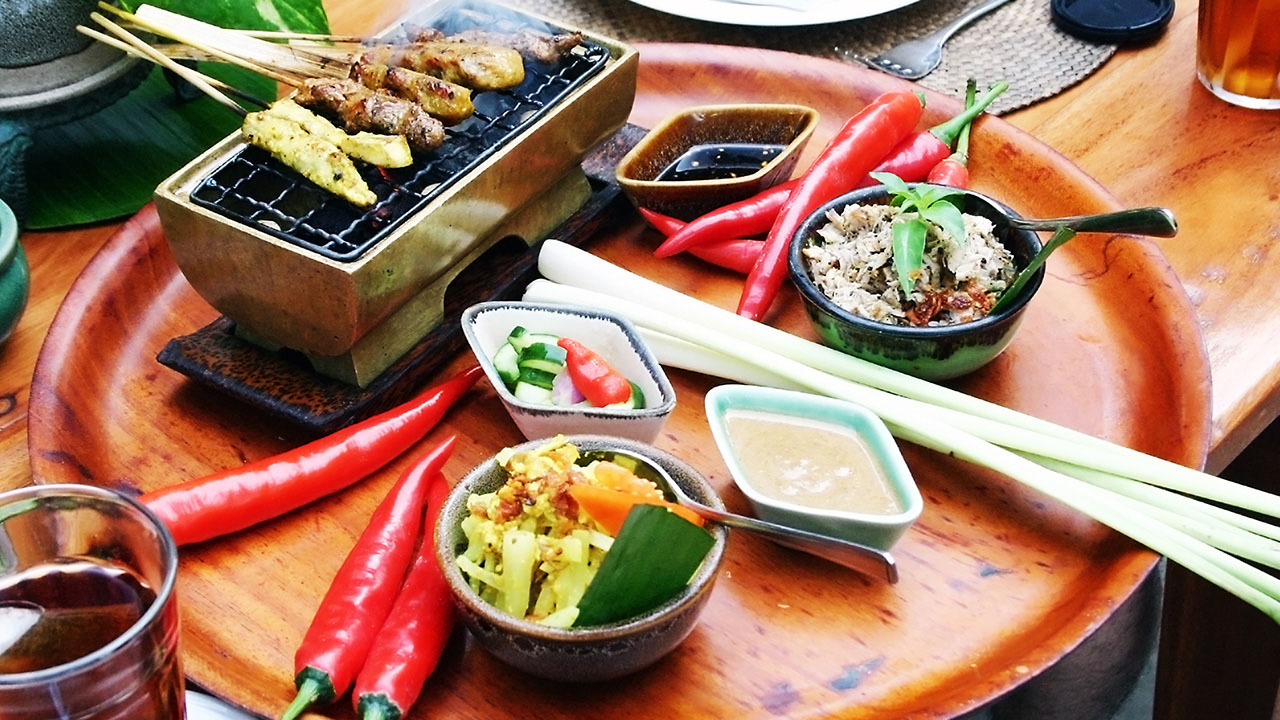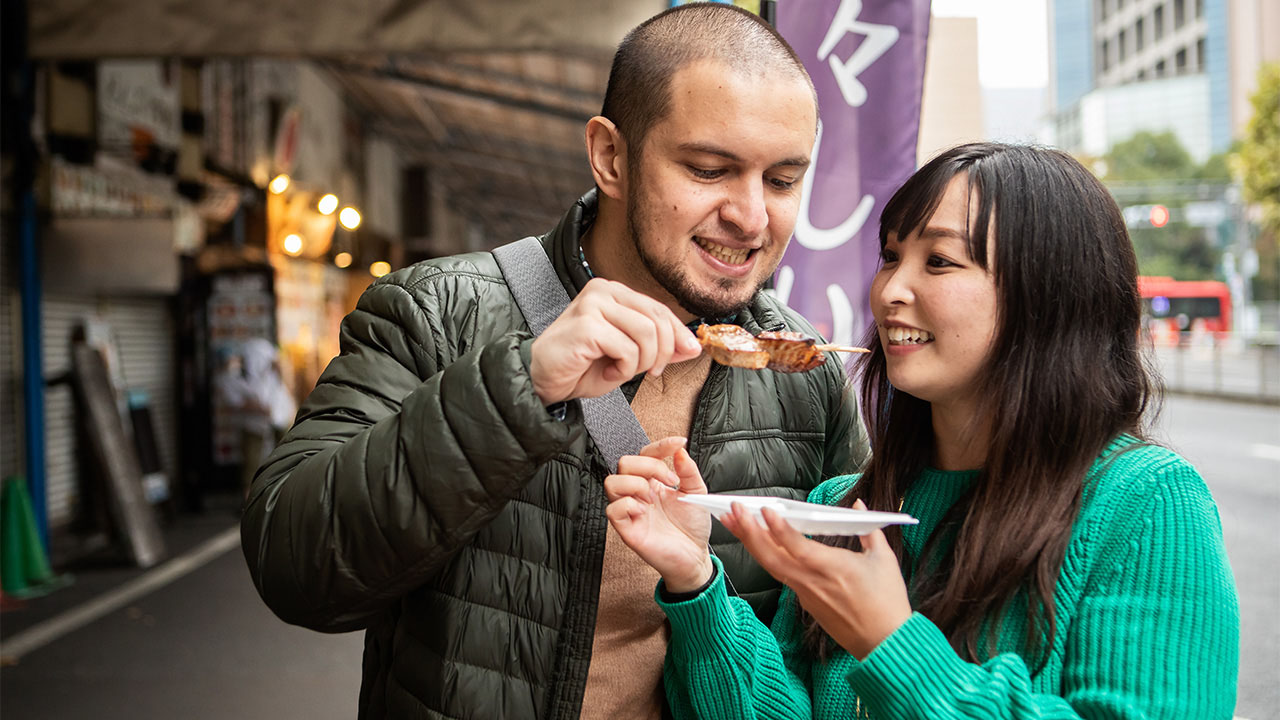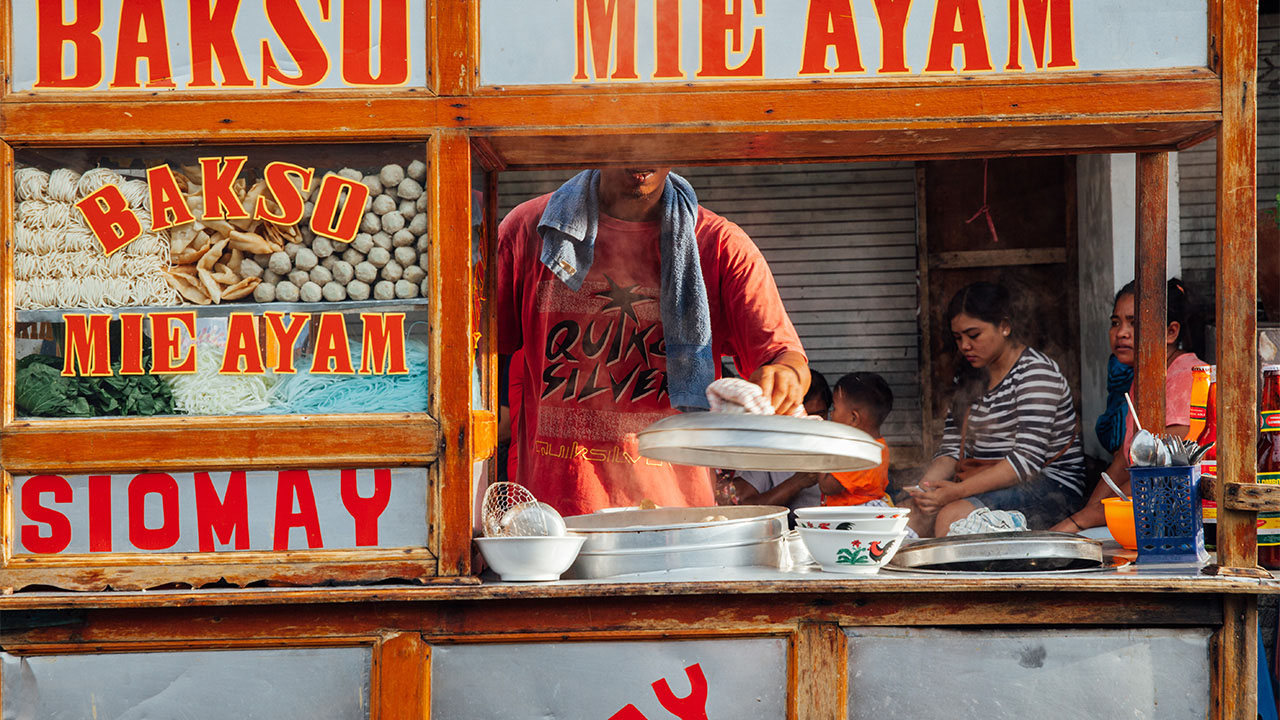
How to prevent Bali Belly
Nothing can spoil your Indonesian adventure faster than the dreaded Bali Belly. Learn the five risks to watch out for.
Avoid travellers’ diarrhoea in Indonesia
Bali Belly, Delhi Belly, travellers’ diarrhoea or Montezuma's revenge. Call it what you will, but every traveller can agree that stomach illnesses are a sure way to take the shine off your hard-earned holiday.
We all know the symptoms, the sweaty palms, the gurgling stomach, the panicked dash to the nearest toilet and all the joy that follows. Indonesia has so many beautiful things to offer, but Bali Belly certainly isn’t one of them.
But what exactly causes Bali Belly and what can you do to avoid it?
In this article, we look into five common causes of stomach illnesses overseas, simple ways to reduce your chances of catching one, and common remedies that can help you along the way.
What is Bali Belly?
Bali Belly is another name given to travellers’ diarrhoea, which can be caused by consuming bacteria found in contaminated food and water. Always check the travel advisory here when visiting Indonesia.
Bali Belly can include stomach discomforts like:
- Cramping
- Nausea
- Vomiting
- Bloating
- Diarrhoea.
And other ailments like:
- Fever
- Fatigue
- Dizziness
- Dehydration
- Lost appetite.
It’s often caught within the first week of travel, as your body tries to adjust to new environments and new bacteria. Bali Belly can clear up within a matter of days, however, more serious cases can require hospitalisation if you become severely dehydrated.

Is Bali Belly contagious?
The bacteria, parasites and viruses that cause Bali Belly can be transmitted between people and also in food and water.
So, if you’re caring for someone who is sick, wash your hands regularly and thoroughly, avoid touching your face, and don’t share food and drinks.

Other countries where travellers’ diarrhoea is common
Bali isn’t the only popular travel destination where stomach bugs are common. Southeast Asian countries like Thailand, Vietnam and Cambodia are also prone to cases of travellers’ diarrhoea, alongside countries in Central America, South America, the Middle East and Africa.
According to the UK Department of Health’s TravelHealthPro website, up to 20% of visitors to these higher-risk regions will suffer from travellers’ diarrhoea during their trip. While the severity of stomach illnesses can vary widely, it’s worth taking precautions to avoid conditions like Bali Belly wherever you travel.
Common causes of Bali Belly
A lot of things can cause travellers’ diarrhoea. Some are easy to avoid if you’re especially careful, but others can be put down to plain bad luck. Below are five common causes of Bali Belly and tips on how to avoid them.
1. Contaminated food
Bacteria thrive in hot and humid environments like Bali, which is why food can spoil faster than at home.
Food can become contaminated when it's:
- Not stored and refrigerated correctly before cooking
- Not prepared correctly during cooking
- Not kept at the right temperature after cooking
- Reheated after cooking
- Handled by an infected person.
To reduce your risks of ingesting contaminated food, avoid eating:
- Undercooked meat and seafood
- Street food from vendors that appear unclean
- Buffets unless from a reputable restaurant
- Peeled fruit
- Raw salads
- Cold or lukewarm food that should be hot
2. Contaminated water
Next to food, contaminated water is one of the most common causes of Bali Belly. Tap water in Indonesia is inconsistent in quality, so it’s recommended that all travellers stick to bottled water.
To reduce your risks of ingesting contaminated water, avoid:
- Ice in your drinks
- Eating foods washed in tap water
- Wet plates, cutlery and glasses
- Brushing your teeth from the tap
- Getting shower water in your mouth and eyes.
Unfortunately, the need for bottled water is a key driver of Bali’s pollution problems. To reduce your environmental footprint:
- Consider using a personal filtration system, which can make contaminated water safer to drink.
- Carry your bottles until you’re able to recycle them. Many hotels and restaurants have recycling facilities you can use.
- If you can’t avoid using single-use plastic bottles, choose large bottles to reduce the overall number you need.
3. Poor hygiene
Like many other illnesses, the bacteria that can cause Bali Belly can be passed from person to person. Poor hygiene is a sure way to increase your risk of contracting a stomach bug and can be avoided by:
- Always washing your hands with sanitiser before eating
- Avoiding touching your face with unclean hands
- Not sharing food and drink.

4. Change in diet
A dramatic change in diet can also be enough to trigger an upset stomach. Exploring new cuisines is one of the most exciting things about travelling, but if you’re not accustomed to certain flavours and food groups, this can sometimes prove too much for your tummy to handle.
To be kind to your stomach, remember to:
- Ease into the local cuisine by choosing familiar foods
- Have alcohol in moderation, as it can irritate the stomach lining
- Ease into local favourites like sambal if you’re not accustomed to spicy food. If you don’t want your meal to include the spicy chilli paste, you can ask for “tanpa sambal”, which means “without sambal”.
5. Change in environment
Travelling can be physically demanding and take a toll on your immune system, especially while you adjust to unfamiliar environments. The combination of Bali’s hot and humid tropical climate, adjusting to a new time zone, and the stress and excitement inherent in travel can make your body more vulnerable to infection.
Adapt to the new environment by:
- Avoiding strenuous activities as soon as you arrive
- Avoiding excessive alcohol and drinking plenty of water
- Gradually decreasing the amount of air conditioning you use while indoors so your body can acclimatise.
How to recover from Bali Belly
If you’ve been struck by a stomach bug, it’s essential that you treat your body correctly to get back on your feet. While the thought of food might put you off, it’s important to replace the electrolytes you may have lost through diarrhoea and vomiting.
According to WebMD, the ‘BRAT’ diet is a common way to recover from diarrhoea:
- Bananas
- Rice
- Apple sauce
- Toast.
Things to avoid while you still feel under the weather include:
- Spicy food
- Dairy
- Alcohol
- Fatty foods.
Can medicine treat and prevent Bali Belly?
There’s currently no magic cure for Bali Belly or a vaccine proven to prevent it entirely, as it can be caused by several different things. However, there are over-the-counter medicines that may be effective in treating its symptoms, and also products like Travelan that are designed to reduce your risk of contracting stomach illnesses in the first place.
Talk to your GP about the best medication to prevent and treat stomach illnesses. It’s still possible to contract travellers’ diarrhoea even with the help of these medicines, so don’t become complacent with your food choices and hygiene.
Common medicines travellers use to treat Bali Belly
There are several medicines travellers use to treat Bali Belly, however it’s important to consult a GP before using any medication. Some available treatments include:
- Electrolyte drinks and powders, like Hydralyte, Gatorade, Pocari Sweat and Lucozade
- Gastro symptom reliefs medications like Imodium, Diapet and Gastro-Stop
- Pain relief like paracetamol and ibuprofen.
Natural treatments that may help
In addition to medications that can alleviate the symptoms of Bali Belly, some travellers swear by natural remedies for treatment and prevention of stomach bugs.
According to MedicineNet, an online healthcare publication owned by WebMD, the following natural remedies can ease the symptoms of stomach conditions like Bali Belly:
- Heat pads for abdominal cramps
- Probiotics like yoghurt and Yakult
- Zinc supplements
- Acupressure on pressure point P-6 on the inner wrist.
Once again, always speak to a doctor about suitable treatments for your Bali Belly.
More serious types of stomach infection
The symptoms of Bali Belly typically subside within a few days to a week; however travellers are also at risk of more serious stomach infections while travelling.
Bacterial infections like E. coli, Salmonella and Shigella, viral infections like Rotaviruses, and parasites like Giardia can each be more serious conditions that require emergency medical attention.
Many of these infections are contracted through undercooked foods like pork, beef and fish, or transmitted during food preparation by people who haven’t washed their hands. Use extra care when eating out in Bali.
Other tips for staying healthy in Bali
With incredible mountain scenery, stunning beaches, lively markets and so many things to do in Bali, you’ll want to stay in top shape for your Indonesian adventure. However, stomach conditions like Bali Belly aren’t the only thing travellers should watch out for.

Avoiding COVID-19 in Indonesia
COVID-19 is present in Bali and travellers should take the usual precautions to avoid becoming sick. These include:
- Following local laws on face coverings and physical distancing, which can be found on the Indonesian Ministry of Tourism website
- Taking extra care in crowded locations
- Regularly washing and sanitising your hands.
Missed flights, cancelled events, booking extensions and room relocations - disruptions due to COVID-19 can be frustrating on holiday. Ensure your Bali travel insurance includes cover for COVID-19.
Avoiding dehydration and heatstroke in Bali
The Indonesian sun is an ever-present risk in Bali, especially because you’ll most likely be spending a lot of your holiday enjoying the outdoors. Conditions like sunstroke, heatstroke and dehydration can come on without much warning, and turn into serious medical emergencies.
Remember to:
- Avoid long periods of full sun exposure
- Stay hydrated with water and electrolyte drinks
- Wear light coloured and loose-fitting clothing
- Apply and reapply sunscreen and zinc
- Acclimatise gradually - don’t step off the plane into a full day on the beach
- Take care when exercising and avoid over-exertion.
How travel insurance can help in Bali
If you need to go to a hospital in Bali or you think you might incur medical expenses that are likely to exceed $2,000, you or someone acting on your behalf will need to contact Southern Cross Emergency Assistance for prior approval as soon as possible on +64 9 359 1600.
We will be able to review your claim, and subject to you meeting the terms and conditions of your policy, organise emergency evacuation if necessary, provide the hospital with a payment guarantee so you don’t have to pay up-front, and keep your family back home informed of your situation.
Keep hold of your receipts and any doctor’s notes as we will need to see these alongside your claim.
If you need to visit a GP for a minor medical reason, you don’t need to contact Southern Cross Emergency Assistance. Instead, simply pay your account and claim.
The content of this article is general and provided for information purposes only. Southern Cross Travel Insurance (SCTI) doesn’t guarantee or warrant the accuracy, completeness or currency of any article.
This article may contain hyperlinks to other websites owned or operated by third parties, or references to third party products or services. SCTI isn’t responsible for, and makes no recommendation about, the content or accuracy of any third party website, or for the suitability or performance of any product or service. The inclusion of a link in this article doesn’t imply that SCTI endorses the website or third party product/service.






